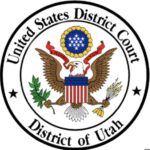Federal Judge Substantiates Utah RS 2477 Right of Way Claims
Judge Clark Waddoups, Senior Judge with the Utah Federal District Court, has been presiding over the consolidated Bellwether RS2477 case filed by Kane County and the State of Utah against the United States and SUWA for many years. In August, Judge Waddoups made a couple of very important rulings that show he has a clear predisposition to substantiate the rights of Utah and Kane County in preserving rights for access on RS2477 claims, of which there are almost 12,000 roads. To illustrate the importance of this it should be remembered that 120 miles of the routes closed in Moab are on existing RS2477 claims.
The first ruling was really aimed straight at SUWA, who is acting as a Intervenor Defendant with the United States. Judge Waddoups expressed that he believed the United States was interesting in settling the long running, complex, and expensive case and that SUWA was dragging it on and unwilling to settle. He was openly frustrated with SUWA’s endless motions taking up the court’s time, and he repeated and clarified his prior ruling that barred SUWA from further motions unless they are approved in advance by the court.
The second Decision in the same case was in response to a motion from BLM that would have dismissed all 12,000 RS2477 claims.
Judge Waddoups approved the dismissal of a single road claim, but denied the request for dismissal of the remaining claims. Further, his 80 page Order was a memorandum of his reasoning for his decision, and went into great detail about his thinking on RS2477 Claims, and why they should be honored without the adjudication of each claim as was contained in prior orders. The decision is very interesting reading, and it seems clear that Judge Waddoups is going to flip the tables on RS2477 road claims, putting BLM on the defense to refute claims rather than requiring the State to gain approval on each claim.
Judge Waddoups made a couple other important distinctions in his ruling:
- Cited the recent Corner Post Supreme Court case to refute many of the statute of limitations motions to dismiss, another win for public land users
- Introduced many theories about why the 2017 BLM SUWA Settlement Agreement may be on shaky ground. This is the reason we are in the process of revisiting 17 Utah Travel Management Plans.
The case is still ongoing, but it appears Judge Waddoups wants to see it close soon, but he’s shown us a peek behind the curtain. This ruling is so monumental that the information I’ve been hearing is that BLM is reconsidering their current TMP/RMP processes in Utah. Once the case is is closed and the decision published, it can be cited in many other land use claims.
Here’s the ruling in its entirety with highlighting of some of the key findings.

